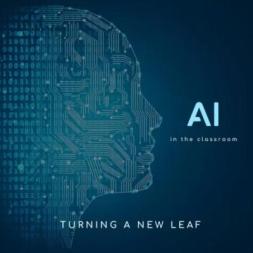AI in the Classroom - Turning a New Leaf: Activities
Created by Helga KRALJIK
Last updated by
Helga KRALJIK
1 year 4 months ago
Methodology:
- Project-Based Learning (PBL): Students have the opportunity to actively explore and understand complex topics such as ethical issues and the application of AI in education and everyday life. Through research, creation, and evaluation, students develop practical skills and a better understanding of technological processes.
- Collaborative learning: Participation in team activities such as creating word clouds, infographics, and posters promotes communication skills, critical thinking, and collaboration. Through this approach, students prepare for real-world challenges related to technology and ethics.
- Peer learning: Collaborative efforts of students in pairs or groups when researching the ethical aspects of AI application in education are evident in jointly defining guidelines, creating classroom norm posters, and engaging in constructive debates. Students exchange ideas, share perspectives, and argue their positions with peers.
- Problem-Based Learning (PBL): Students are actively engaged in researching ethical dilemmas related to the application of artificial intelligence in education. Through defining guidelines, analyzing usage examples, and engaging in reasoned debates, students develop critical thinking, analytical skills, and the ability to make informed decisions. This approach empowers students to apply their knowledge to real situations, promotes a deeper understanding of complex topics, and prepares them to face the challenges of the technological and ethical world.
- Learning through gamification: Activities may include awarding points or badges to students for collaborating on research and debates on the ethical aspects of AI. Teams can competitively evaluate examples of AI usage in education and win awards for the most innovative or well-argued approaches.
- Student-centered learning: The student actively explores the ethical aspects of AI application, either independently or in pairs, and recognizes the importance of guidelines for responsible technology use. The student develops their own arguments and critically reflects on examples of AI usage in information technology. Students are encouraged to proactively participate, build confidence, and take responsibility for their learning process.


